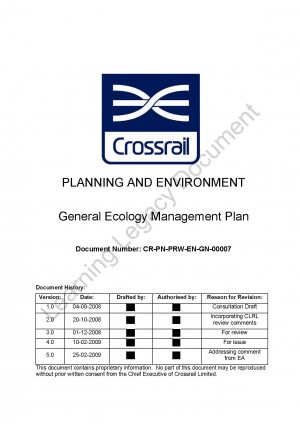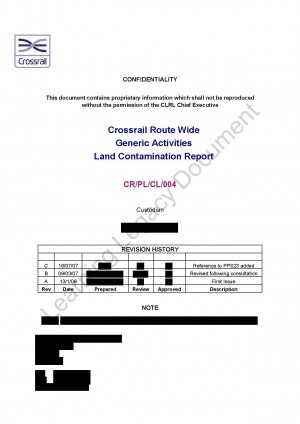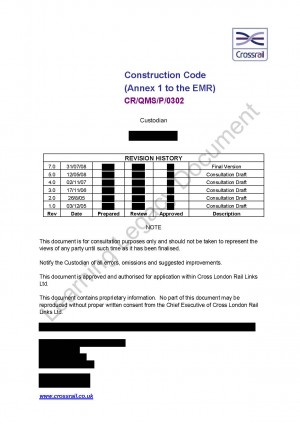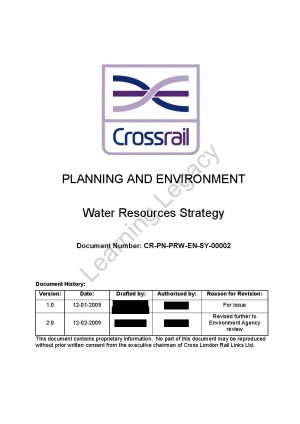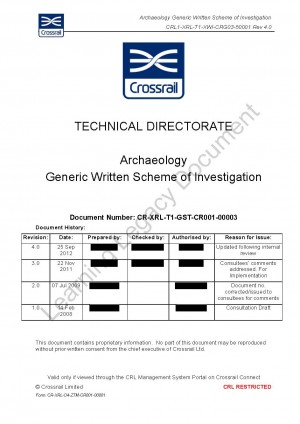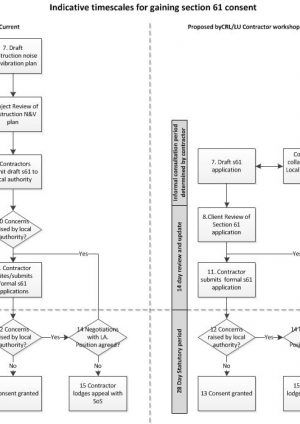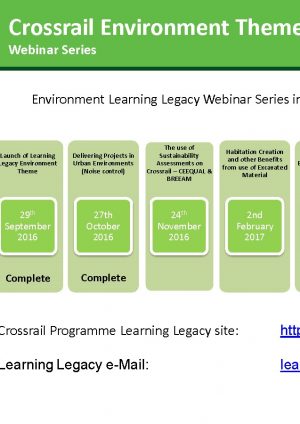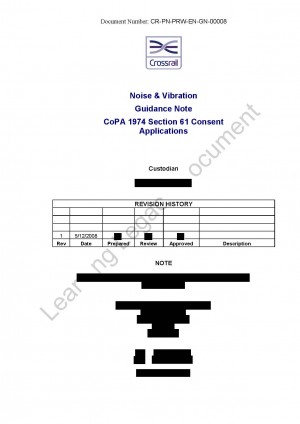Environmental Requirements

The Crossrail Act received Royal Assent in 2008. The construction of Crossrail is governed by the Crossrail Environmental Minimum Requirements (EMR) which sets out the measures to control and manage environmental impacts for contractors and others working to design and build the railway. It was developed by Crossrail working with the relevant Local Authorities and Statutory Agencies.
The EMR includes:
Subsequent to the publication of the EMR, the following documents were prepared by Crossrail and agreed by the relevant Statutory Authorities, in accordance with the requirements.
| Summary |
Publication date |
Document Type |
Topic area: Environmental Requirements When the Crossrail Hybrid Bill was introduced into the House of Commons it was accompanied by an Environmental Statement (including the supporting Ecology Technical Specialist Report) which presented the outcomes of the ecological studies undertaken to identify and evaluate the features of ecological interest, the find...
|
26/02/2016 |
Good Practice Document |
Topic area: Environmental Requirements A contaminated land assessment was carried out as part of the Crossrail Environmental Impact Assessment. The results were reported in the Crossrail Environmental Statement submitted with the hybrid Bill. A Contaminated Land Specialist Technical Report was produced at the same time to provide further information about t...
|
26/02/2016 |
Good Practice Document |
Topic area: Environmental Requirements The Construction Code forms part of the Environmental Minimum Requirements (EMR) for Crossrail. The Code was developed by Crossrail in consultation with local authorities and other relevant stakeholders during the passage of the Crossrail Bill through parliament. Its purpose was to provide reassurance to stakeholders a...
|
26/02/2016 |
Good Practice Document |
Topic area: Environmental Requirements The Water Resources chapter of the Construction Code required Crossrail to prepare a strategy for handling water resources issues in consultation with the Environment Agency (EA) that would be based on accepted industry practice. It also required that the process for agreeing the strategy include liaison and consultati...
|
26/02/2016 |
Good Practice Document |
Topic area: Environmental Requirements During the planning stages of Crossrail it was noted that there was the potential for finding archaeological remains at many sites across the Crossrail route during excavations and other construction works and that works involving ground breaking and excavation had the potential to result in the physical removal of, or...
|
26/02/2016 |
Good Practice Document |
Topic area: Noise and Vibration The Noise and Vibration Guidance Note CoPA 1974 Section 61 Consent Applications and the Model Conditions were developed in consultation with the local authorities and were based upon similar arrangements made between local authorities and other major projects such as CTRL (HS1) and the Thameslink programme.
A lessons l...
|
13/03/2018 |
Good Practice Document |
Topic area: Environment Webinars This is the second in a series of Crossrail Learning Legacy webinars focused on the Environment Theme, hosted by our partners at CIRIA and IEMA. It describes how Crossrail has worked in collaboration to mitigate and manage noise and vibration in a major infrastructure project.
Crossrail delivers new stations and railwa...
|
27/10/2016 |
Video |
Topic area: Noise and Vibration This paper sets out the guidance that the nominated undertaker was to adopt when applying for section 61 consents for Crossrail construction works, and also sets out the level of information to be provided in support of section 61 applications. The guidance notes Included templates for section 61 applications, dispensa...
|
26/02/2016 |
Good Practice Document |

